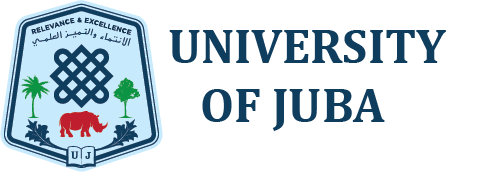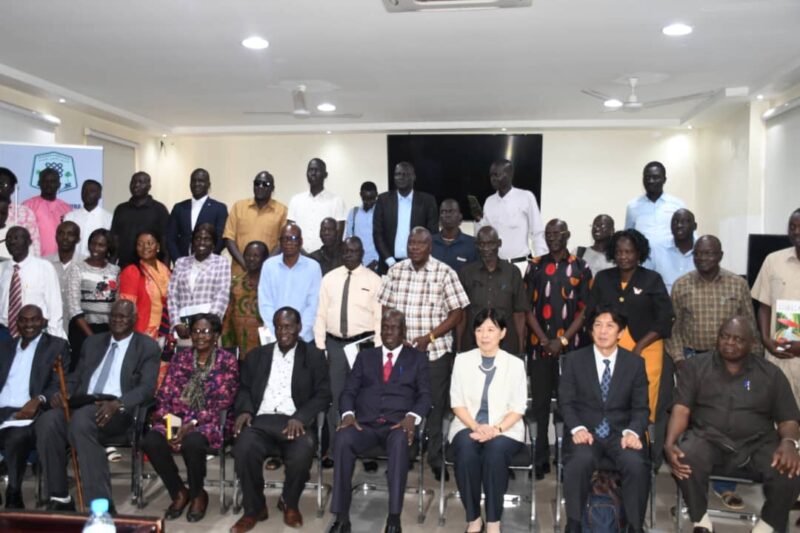On September 5th, 2024, the University of Juba in collaboration with the Japan International Cooperation Agency (JICA) launched the Institute of Japanese Studies in Senate Hall.
During the opening remarks, Prof. Robert Mayom Deng, the Vice Chancellor of the University of Juba, recalled a Memorandum of Understanding signed with JICA 3 years ago, which aimed at promoting sustainable development through knowledge sharing. He noted the limited success in student mobility to Japan and praised Dr. Jacob Dut Chol for his leadership. Prof. Deng called for increased support from JICA, particularly in the form of expanded resources and scholarships in fields such as science, IT, and medical sciences, while also acknowledging contributions from key individuals involved in the partnership.
His Excellency, Ambassador Odagiri Toshio, the Japanese Ambassador to South Sudan expressed appreciation for the establishment of the Institute of Japanese and Asian Studies (IJAS) at the University of Juba, highlighting Japan’s ongoing collaboration with the institution and encouraging students to utilize the Juba Japan Cultural Centre for their studies.
Dr. Kayashima Nobuko, Senior Research Advisor of JICA, delivered an inaugural lecture on the importance of Japan’s educational systems. She further elaborated on Japan’s educational evolution, contrasting the transformative Meiji Period with the Edo Period, and emphasizing the significance of the national educational system in promoting social mobility and economic development, while also advocating for the integration of global knowledge to advance Japan’s educational landscape and its overall growth.
During a panel discussion, Hon. Dr. Peter Adwok Nyaba, former Minister of Higher Education, Science and Technology, highlighted the essential role of higher education in fostering development and innovation. Prof. Dr. Julia Aker Duany, the former Vice Chancellor of Dr. John Garang Memorial University, examined Japan’s educational systems, emphasizing the importance of equitable education for national economic evaluation. Advocate Adwol Deng noted South Sudan’s educational efforts, citing the Higher Education Act of 2012 as a key element for progress amid challenges.
Prof. Justo Wani, Deputy Vice Chancellor for Administration and Finance, pointed out the decline of the higher education system in Sudan after the Comprehensive Peace Agreement (CPA), emphasizing the curriculum shifted away from practical experience, which has negatively impacted educational quality and relevance.
Prof. Robert Mayom Deng in his closing remarks, highlighted two major issues discussed by the speaker: the introduction of technology and knowledge, which are crucial for international relations, exemplified by Singapore’s practice of sending 50 top students to Japan for training, and Rwanda’s initiative of sending students to Harvard University. Additionally, he noted the importance of peace and education during the period of relative peace from 1972 to 1983, emphasizing the value of fostering a collective national consciousness similar to Japan’s. Lastly, he thanked Dr. Kayashima for the insightful presentation and discussion.

